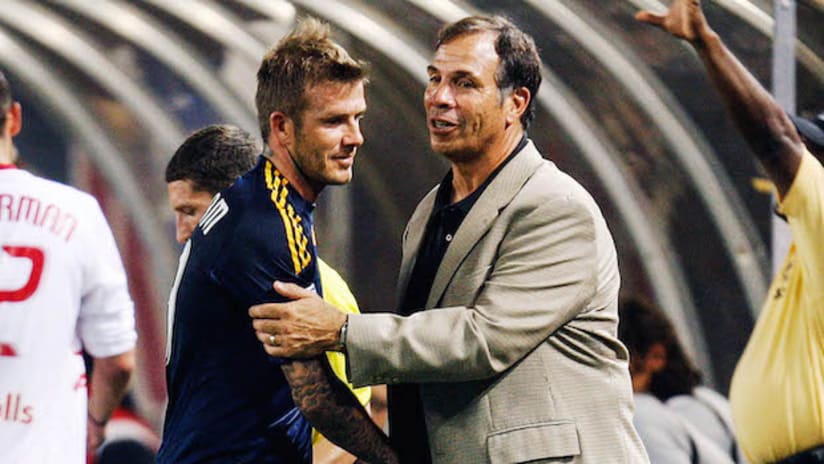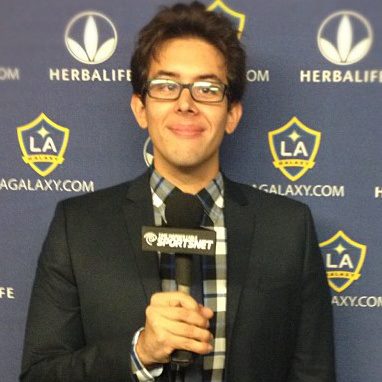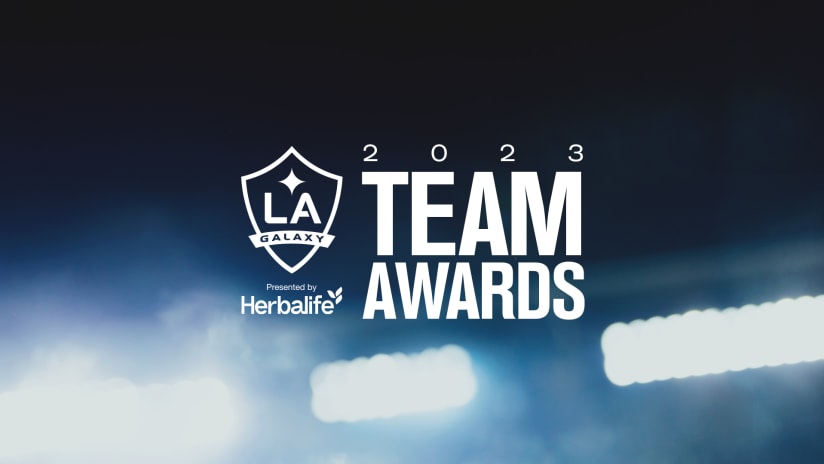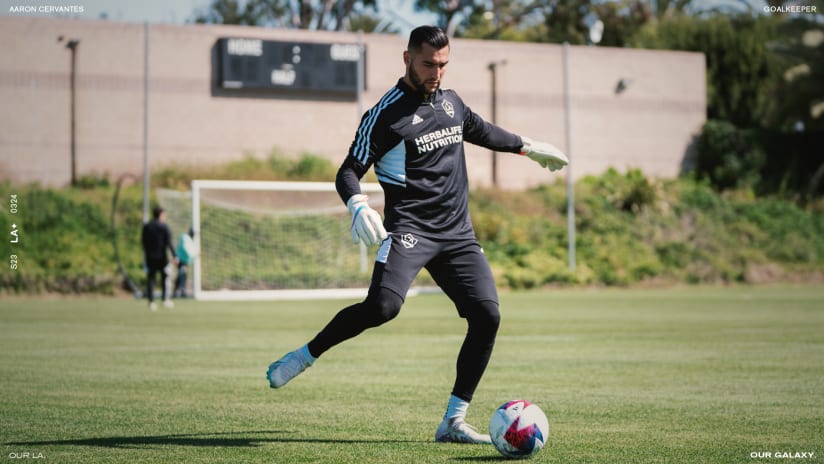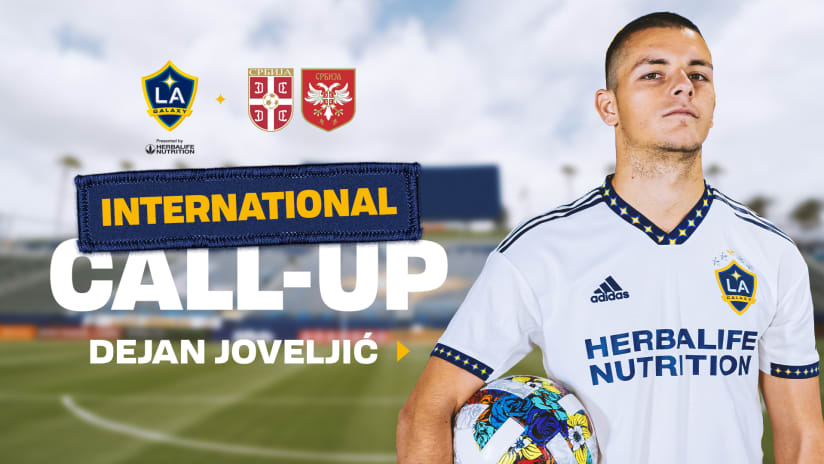CARSON, Calif. – When Bruce Arena arrived at the LA Galaxy in August 2008, he saw a team in utter disrepair.
In a little under seven months, Arena transformed his squad from a laughing stock into perennial title contenders.
To best understand just how Arena has instilled a winning mentality at the club, you’ll need to examine the Galaxy head coach’s very first offseason at the helm.
Back in 2008, the Galaxy found themselves on the foot of the Western Conference despite boasting stars like David Beckham and Landon Donovan. Add that star power—and the egos that came with it— to a team that had failed to make the playoffs since winning MLS Cup 2005, and it was no surprise that the locker room was described by players as a “circus ” and a “rudder-less ship.”
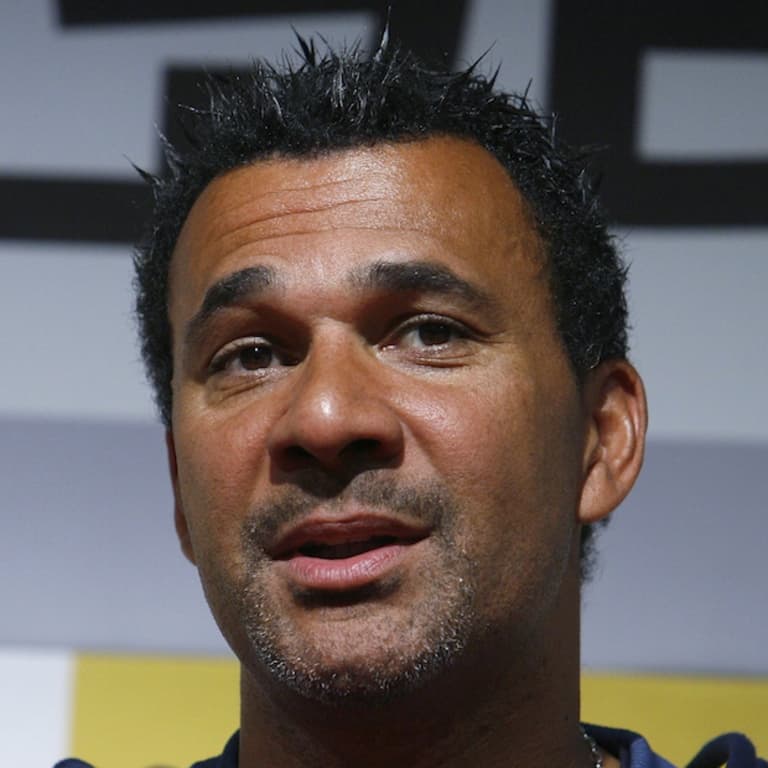
Much of the blame for the Galaxy’s dysfunction was placed at the feet of former head coach Ruud Gullit and club president and general manager Alexi Lalas who were both dismissed after the club started the 2008 season with a 6-8-5 record.
Once Arena arrived, the Galaxy’s fortunes improved slightly in his first half season in charge as the club went 2-5-3, falling just short of making the postseason.
“I came in the middle of August in 2008 and we still had aspirations of making the playoffs and gave it a pretty good shot, just missing out in the last two weeks. But in reality, the team had no chance,” Arena told LAGalaxy.com. “It was just a poor roster. I benefited from the fact that I had a couple of months to witness those players every day in training and in games. It was very apparent that we had to make radical changes.”
Once the offseason began, the changes came—rapidly.
Out went players like Alvaro Pires, Ante Jazic and Eduardo Dominguez to be replaced by experienced professionals familiar to Arena and his staff. The first to arrive were Eddie Lewis and Josh Saunders in the first few months of Arena’s tenure.
Then veteran U.S. internationals Jovan Kirovski and Tony Sanneh were added to the squad and were quickly joined by experienced MLS players Dema Kovalenko, Mike Magee and Todd Dunivant. The moves hardly stopped there, however, as Arena signed Jamaican goalkeeper Donovan Ricketts to further shore up LA’s backline.
When the draft rolled around even more reinforcements arrived as Arena added the future spine of his team by selecting Maryland center backs Omar Gonzalez and A.J. DeLaGarza with the club’s first two picks in the 2009 MLS SuperDraft.
The final addition was experienced USMNT defender and European journeyman Gregg Berhalter.
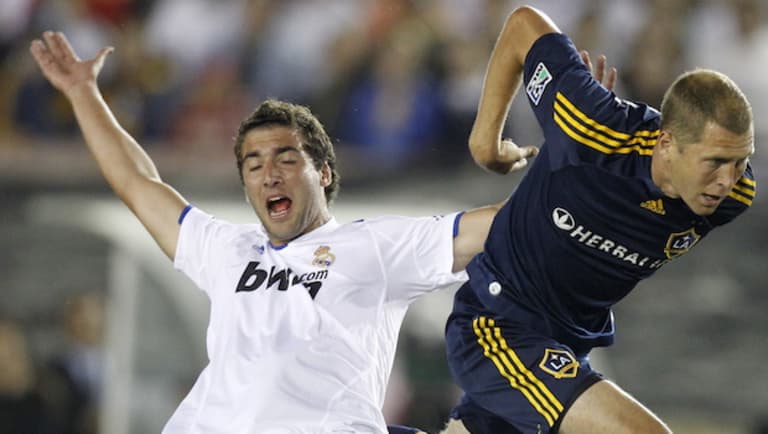
“The culture that I saw in the locker room when I first came here was not a culture that was ever going to work,” Arena recalls. “That changed when we brought in experienced and quality guys then things changed really quickly.”
With the roster almost completely rebuilt, the results quickly improved for the Galaxy. After a slow start to the season, LA finished with 12-6-12 regular season record and 48 points for the best record in the Western Conference, falling just a point shy of the Supporters’ Shield winning Columbus Crew. In the Western Conference playoffs, Arena’s squad dispatched Chivas USA and the two-time MLS Cup champion Houston Dynamo to reach the 2009 MLS Cup Final. Only a series of injuries to Ricketts and Kovalenko and a few misses from the penalty spot prevented the Galaxy from lifting the MLS Cup as Real Salt Lake earned their very first title.
Even though the Galaxy fell short of the title, the culture of the club had been changed and the Galaxy were reborn.
“It wasn’t a good start to the year, but he was still trying to get everyone on his page. Eventually we all got on board. We lost the Supporters’ Shield by a point that year, I think. And went to the MLS Cup final,” said DeLaGarza. “We kept a good group of guys. This is my seventh year and it’s important to keep a core group together.”
By start of the 2010 season, the roster had been completely turned over as Arena added Brazilians Leonardo and Juninho to the fold. Despite winning the club’s first Supporters’ Shield since 2002, the Galaxy fell just short of a second-straight appearance in the MLS Cup final after losing to FC Dallas in the Western Conference Championship.
Arena found the missing piece that he needed to bring the MLS Cup back to Los Angeles a year later when Robbie Keane was signed from Tottenham Hotspur, officially kicking off the Galaxy’s dynastic run of three MLS Cup titles in four years.
Such a successful roster rebuild has not been repeated in Major League Soccer since Arena worked wonders in 2008. Even when the team fell short of titles in 2010 and 2013, Arena opted for small incremental changes as he looked to refine his squad into the championship team that they remain today.
“We’ve had the best team in the league over the last four years so you never want to make radical changes but there are certain principles that you rely on, for sure,” Arena said. “You want to have a little bit of old and a little bit of new.”
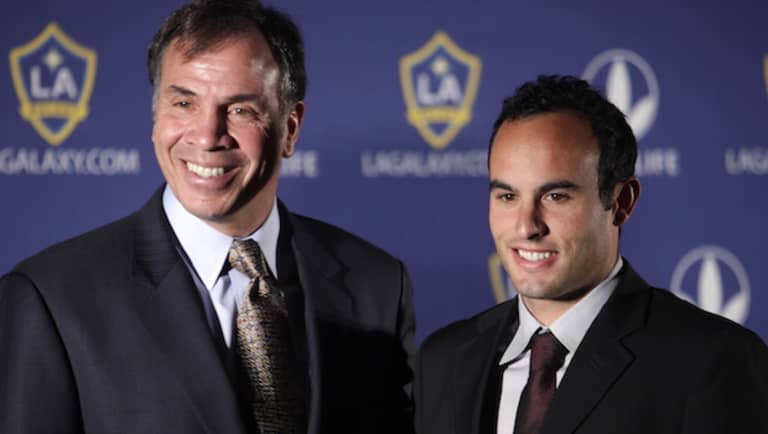
Added Kirovski who moved into coaching after his retirement in 2011 and now serves as the club’s Technical Director, “He did all the work in ‘09 and established the winning mentality that still exists today. Simply, he changed the circus into a championship team. Bruce is a winner and the guys that he brings in help. The initial turnaround changed everything completely and still goes forward as we speak.”
No two players illustrate Arena’s 2009 vision than DeLaGarza and Gonzalez. Starters from almost the moment that they were drafted, the pair were given an opportunity to learn from the likes of Sanneh and Berhalter (who took a particular interest in Gonzalez) as they honed their craft. Such experience only aided the two defenders as they have grown into major contributors for the Galaxy, both boasting over 200 appearances in all competitions for the club.
As they’ve grown into two of the finest defenders in Major League Soccer, Arena admits that the development that he has seen in DeLaGarza and Gonzalez has not been limited to the soccer field.
“They’re well established in the club, they’re now married. Both will be fathers this year. Both care about the club and pretty much show leadership by the way that they play and train,” Arena says. “They’ve become good professionals and that becomes contagious. That’s the part of our locker room that is good. They are professionals in good times and bad, and when you have enough of those people with those characteristics over the long haul then you’ll be successful.”
LA Galaxy’s Record Since 2009 | ||||
|---|---|---|---|---|
| Year | Wins | Losses | Draws | Points |
2009 | 12 | 6 | 12 | 48 |
2010 | 18 | 7 | 5 | 59 |
2011 | 19 | 5 | 10 | 67 |
2012 | 16 | 10 | 6 | 54 |
2013 | 15 | 11 | 8 | 53 |
2014 | 17 | 7 | 10 | 61 |
The professional environment that Arena first created in 2009 allowed for the growth of players like DeLaGarza and Gonzalez to evolve from raw rookies to veteran leaders remains in place today. With the addition of seasoned veterans like Alan Gordon and Dan Gargan along with the infusion of youth from Gyasi Zardes, Bradford Jamieson IV and Jose Villarreal, Arena’s strategy is very much still in place as the Galaxy compete for their sixth title just six years later.
Given his success, the question must be asked, if Arena’s plan for team building could serve as a blueprint across the league? Quite possibly says his top lieutenant.
“People underestimate what we’ve done here. It’s very hard in a league of parity. It takes experience to know what works in the locker room and what doesn’t,” said Associate head coach Dave Sarachan. “It’s not an exact science and we don’t get it always right but as long you don’t blow up and start completely over, you just bring in some of the small pieces that you lost that are the same or better then you have a formula for being successful.
“I think that there are a lot of impatient organizations and a lot of unnecessary pressure coming from their top to their coaches. There’s a lot of pressure to win now, and while we all want to win now, there’s a certain way that you go about it. We’ve done it in a way that has been pretty successful.”
It’s not just the external rigors that make winning in MLS so difficult according to Arena. There are a whole host of other issues that make it difficult for teams to establish the types of dynasties that the Galaxy have built.
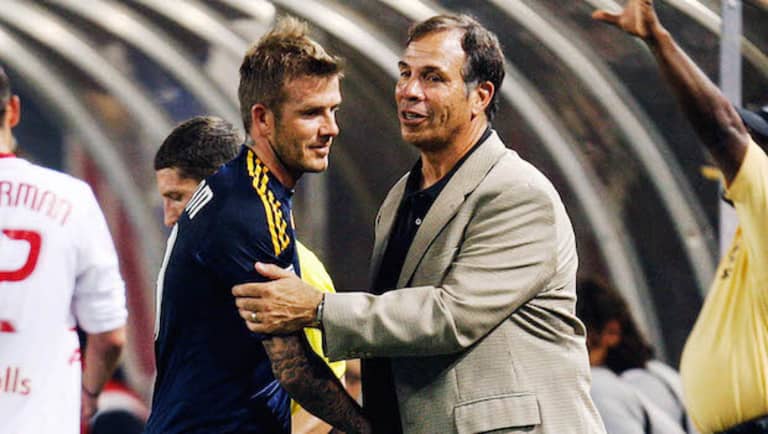
“I think at this point in this league, it’s such a difficult league to compete and play in, that it is hard [to win consistently],” Arena said. “The expansion has made it difficult to build rosters, you lose players every year, most of the rules favor the teams that don’t make the playoffs so there is a balancing act all the time.
“And the general competition is so awkward with the scheduling that you never play in the same field twice. One week it’s turf, one week it’s grass, one week it’s a field that’s small, and one week it’s a field that’s big. One week it’s cold and snowing, one week it’s 95 degrees, one week it’s altitude, and one week it’s traveling across the country. It’s a zoo. I don’t know if there is any formula for success.”
Arena may be the most successful manager in MLS but even in his sixth full season with the Galaxy, the 63-year-old says that he’s still learning how to build a winner.
“We can deal with it but it doesn’t necessarily mean that you’re always going to be successful,” Arena said. “Experience allows you to deal with [those issues], but it’s not easy.
“I like to have people that care. If they can play and they care, then you’ve got the best of both worlds.”
Adam Serrano is the LA Galaxy Insider. Read his blog at www.LAGalaxy.com/insider and contact him at LAGalaxyInsider@Gmail.com.

